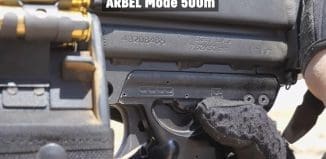South Korea’s Air Defense: neither Israeli nor American
This post is also available in:  עברית (Hebrew)
עברית (Hebrew)

What system will defend South Korea from its neighboring country ballistic missile and other aerial threats?
At this moment, the problem has grown to unprecedented sizes. Russia recently warned the United States against sending a ballistic missile defense system to South Korea, saying it could threaten regional security.
For its part, Washington says it wants to deploy the system, known as THAAD, to South Korea as a deterrent to military provocation by North Korea. “Such a development cannot but cause concern about the destructive influence of the United States’ global missile defense on international security,” Russia’s foreign ministry said in a statement.
“In a region where the situation is already extremely complicated in terms of security, this could serve as another push toward an arms race in northeast Asia and further complicate any resolution of the nuclear issues on the Korean peninsula,” the statement said. China has also already warned that deployment of the system would undermine peace and stability in the region.
 Register to iHLS Israel Homeland Security
Register to iHLS Israel Homeland Security
According to Defense News, faced with growing isolation from the West over the Ukraine crisis, Russia has moved to bolster ties with former Cold War-ally North Korea. Moscow and Pyongyang have named 2015 a “year of friendship” between the two countries. The Kremlin says reclusive leader Kim Jong-Un is set to make his first official trip abroad to visit Russia’s World War II Victory commemoration in May.
South Korea and the United States will launch a massive landing drill March 28 as the climax of an ongoing joint military exercise which North Korea views as an invasion.
In the past, South Korea indicated its intent to buy Israeli made systems like the Arrow anti ballistic missile systems developed by Israel aerospace industries (IAI) but the U.S objected. The U.S has funded some of the development costs and therefore can veto its export. The Elta Green Pine detection radar which is part of the Arrow system was developed using Israeli funds and therefore could be exported to South Korea.






























